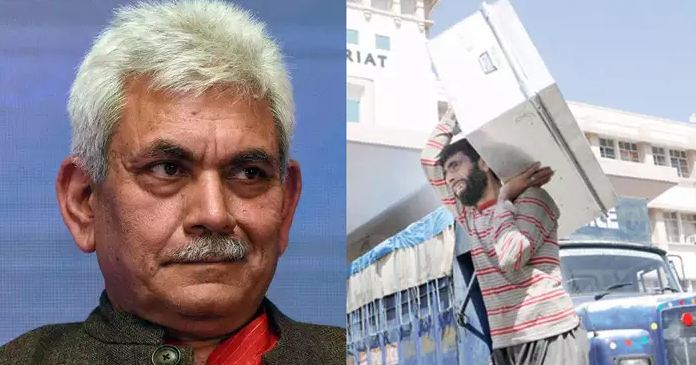On 30th June, 2021, the bi-annual system of ‘Darbar Move’ in Jammu and Kashmir finally came to an end, which saves up to 200 crores of taxpayers’ money. This custom could be first traced back to the Dogra rule and Maharaja Ranbir Singh is said to have started this practice of moving the entire darbar officially between Jammu in the winters and Srinagar in the summers in order to escape extreme weather conditions in both the regions. His father Maharaja Gulab Singh, is known to have occasionally shifted his administrative office in the same manner. This tradition continued after 1949 by Jammu and Kashmir as it acted as a major bridge space for interaction between the linguistics and diverse cultural groups of Jammu and Kashmir.
This tradition first faced criticism in the 1980s over the expenses and time involved. Social activist Idrees ul Haq from Jammu and Kashmir has been vocal since 2013 to ban this age-old practice for exchequer’s Financial loss. Finally, lieutenant governor Manoj Sinha made the big move by serving a notice to the employees working in the civil secretariat in the twin capital to vacate ‘Darbar move’ related accommodation in three weeks.
Every year more than ten thousand employees of the J&K government had to travel within six months with the whole administration. These included Ministers, High Court Judges, IAS and IPS officers, middle rung officers, clerical staff, office, peons, and so on. The Heads of Departments (HoDs) of some government departments are among those who moved along with their offices.
Transferring together with information and hundreds of official files physically in trucks twice a year sounds very illogical. It is only legitimate to scrap this expensive practice as a lot of taxpayers’ money gets wasted in the ‘Darbar Move’, it literally drains the state exchequer of crores of rupees every six months. It was nothing but a waste of tremendous time, effort, and energy on an inefficient and unnecessary activity. Travelling in the time of pandemic even makes it worse. Rationalising this practice was necessary, as it saves a tremendous amount of resources and time, which in return could be utilised towards the welfare and development of the UT. It could also be used for the protection and propagation of the culture and heritage of the communities within.
As reported by TFI, last year, the Jammu and Kashmir High Court had made some important observations about the bi-annual ‘Darbar Move’. A Division Bench consisting of Chief Justice Gita Mittal and Justice Rajnesh Oswal had suggested that the practice be abolished.
The High Court had asked, “Can any Government afford the annual expenditure of at least Rs 200 crore to sustain and perpetuate an arrangement of bi-annual shifting of its Capital two times a year, which originated in 1872 from the discomfort of the then Ruler of Jammu and Kashmir with the harshness of the winter in Kashmir?”
The bench further asked, “More so, is this acceptable in a hopelessly fiscally deprived UT with severe underdevelopment and people deprived of bare basics which are an essential part of their fundamental right of life guaranteed under Article 21 of the Constitution of India?”
On March 31st, 2020 former Chief Secretary B.V.R Subrahmanyam said the government had taken measures to switch to a paperless office by rolling out e-office in the moving departments. The administration has uploaded official records to the e-office and The Jammu and Kashmir administration has completely transitioned to e-office, thereby ending the practice of the bi-annual Darbar move forever.
